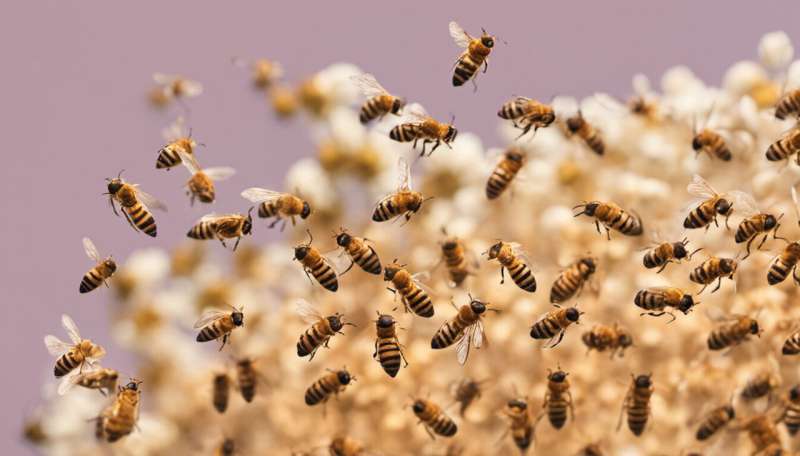Honeybee genome to enable genetic study of social behaviour

Oxford researchers are part of a global consortium that has sequenced the genome of the honeybee, publishing the results in Nature. It is first social insect to have its genetic instructions decoded, offering exciting possibilities for finding a molecular basis to social behaviour.
Honeybees, along with other advanced social insects like leafcutter ants, exhibit the most extreme form of social behaviour known, living in colonies and dividing up labour. Each bee’s brain has only one millionth of neurons of a human brain, yet they are the only animals apart from primates to use a form of symbolic language: the famous waggledance, which indicates the location of pollen.
Honeybees are also economically important, not only providing honey and wax but pollinating a wide variety of crops.
The sequencing of the honeybee genome provides a toolkit which allows scientists to look for a genetic basis to their complex behaviour.
Researchers expect that the regulation of gene activity (whether genes are turned on or off) will be as important, if not more so, than the genes themselves. Queen bees and worker bees are different types of organism, despite all having the same genome – so different expression of the same genes must be the key.
The Oxford involvement came from Professor David Sattelle and Dr Andrew Jones in the Department of Physiology, Anatomy and Genetics. Their role was to characterise a particular gene family which encodes certain proteins known as ligand-gated ion channels (LGICs). These proteins mediate fast synaptic transmission in the brain, which is the key to many cognitive processes. This will be of particular interest in the honeybee, given the sophistication of its cognitive abilities compared to the size of its brain.
Professor Sattelle and Dr Jones are experts in the role of this gene family in human neurodegenerative diseases such as Alzheimer’s. Studying the genetic regulation of LGIC proteins in the honeybee may shed light on human motor neuron disease, in which faulty expression of LGIC proteins has been implicated.
Source: University of Oxford

















